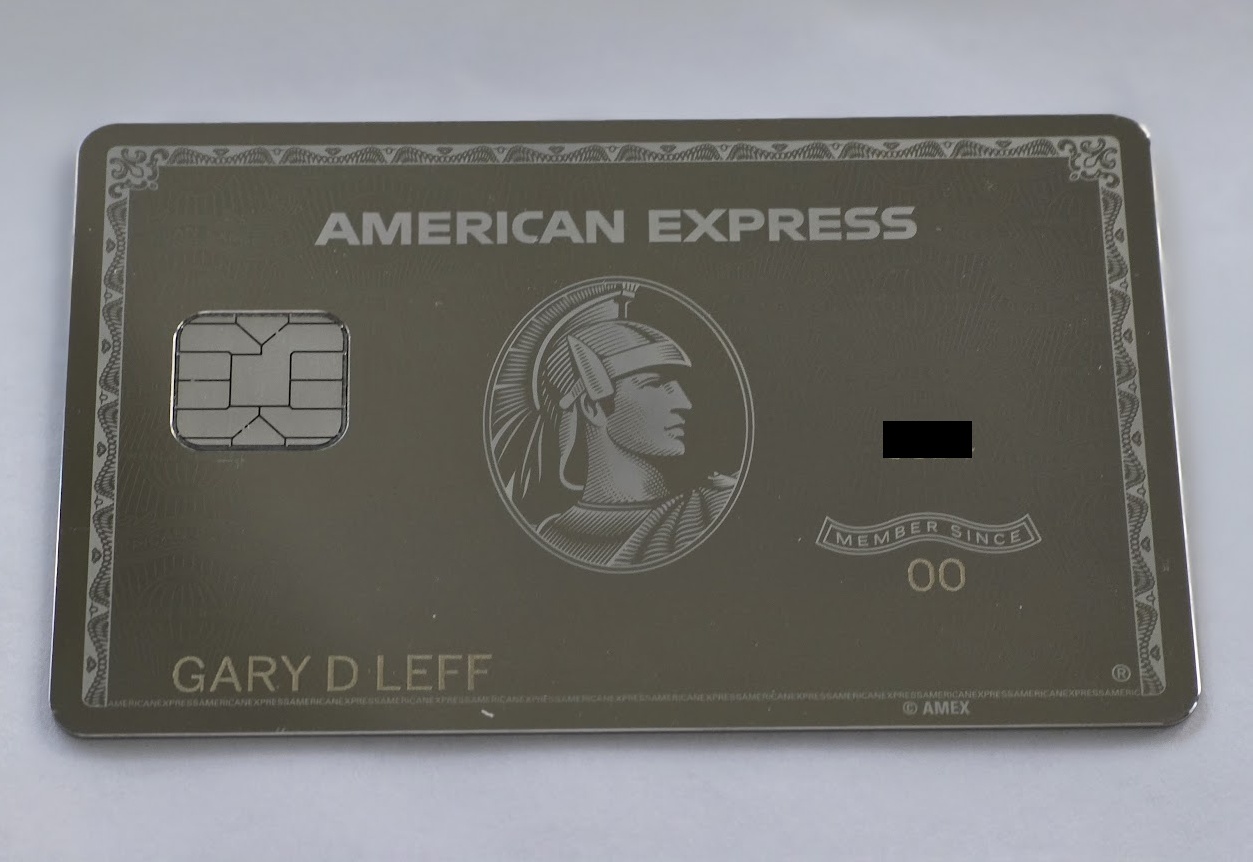I receive compensation for content and many links on this blog. Be aware that websites may earn compensation when a customer clicks on a link, when an application is approved, or when an account is opened. Citibank is an advertising partner of this site, as is American Express, Chase, and Capital One. Any opinions expressed in this post are my own, and have not been reviewed, approved, or endorsed by my advertising partners. I do not write about all credit cards that are available -- instead focusing on miles, points, and cash back (and currencies that can be converted into the same). Terms apply to the offers and benefits listed on this page.
With all of the statement credits from the various premium rewards card refreshes, I’ve been thinking about the ethics involved in turning these credits into cash.
There’s a few variations on this. First, think about using statement credits from the American Express Platinum Card® like the Amex airline fee credit and the Resy credit to buy cash equivalents.
You’re not supposed to be able to use the airline fee credit for airfare. However, what I’ve been doing for a few years is selecting Southwest Airlines as my designated carrier for the credit. And purchases of airfare under $100 on my Platinum card would get reimbursed. I could even cancel that ticket for a credit to apply to a future purchase, combining more than one credit.

At some point this could stop working (just like buying American Airlines gift cards stopped working). But in the meantime I’m using these credits for airfare even though I’m not supposed to be able to.
- It’s against ‘the rules’
- It drives up Amex’s costs
Is this unethical?
Similarly, I didn’t have a chance to use my Platinum card’s new quarterly $100 Resy benefit before the end of the September quarter, so I purchased a $100 gift card online from a restaurant I freqeunt that uses Resy (and processes gift cards via Toast, it credited back on my card account). I’ve seen reports of a wine club that triggers the Resy credit, too!

This, too, doesn’t follow Amex’s rules since gift card purchases aren’t supposed to trigger the credit. Am I breaking a contract here? Or is Amex just being more generous than their published benefits explanation, since they are crediting gift card purchases when they say they won’t? (And since a restaurant could change how they process gift cards, Amex wouldn’t want to promise this.)
Let’s look at another scenario. Say that I use the $600 annual ($300×2) Amex hotel booking credit, where you can use it at a Fine Hotels and Resorts property on any stay or a Hotel Collection property on at least a two-night stay. And let’s further say I use it for a work trip.
- Do I submit the full amount of the stay – which I get a receipt from Amex for! – for reimbursement?
- I’ve been credited $300 of that back. Since the stay cost me $300 less, should I only get reimbursed for what I actually wound up out of pocket?

In other words, should my employer benefit because I have this card and it offers me a credit? Or is it ok to turn the benefit into cash via a work trip?
The same question is at play for Chase Sapphire Reserve® (See rates and fees). Starting in 2026, their $500 annual credit for stays with The Edit properties gets even more generous because there will be no need to split up the 2 $250 credits into different six-month time periods.

For the ethical exercise, let’s leave aside the tax question of whether the rebate reduces my cost basis in the trip and thus shouldn’t be fully reimbursed on a tax-free basis.
The key here is that you’re prepaying the whole charge and getting a credit back. Cards that just reduce the cost of your trip by the amount of the available credit aren’t going to present this same challenge or opportunity in the same way, since your receipt will be for the reduced amount and therefore is probably all you can claim reimbursement on. Then you’re using the credit for your employer’s benefit rather than your own.
- Citi Strata EliteSM Card is offering some amazing value in the first year, with not just an 80,000 point offer but the $200 splurge credit (e.g. American Airlines, Best Buy) and $300 hotel credit are on a calendar year basis – so can be used still in 2025 and again at the start of early 2026, all in your first cardmember year.
But you’re not going to use the hotel credit on a work stay. The annual $300 hotel credit for stays of two or more nights are prepaid through Citi Travel. (Prepaid rates can still be cancellable and refundable.) It is applied to your booking when you make the reservation – it’s not a statement credit that posts later.
- Similarly, when you use the $300 travel credit through the Capital One portal that’s an annual benefit of the Capital One Venture X Card, they deduct the $300 from your charge rather than having you pay it and get reimbursed with a statement credit.
Your employer may be billing a client, but that’s not really relevant since it just pushes back the question to whether the client should be benefiting from the card you happen to have to pay for your stay?
Your employer has you on the road for a couple of nights and expects to pay for those nights, because you happen to work for a company that doesn’t manage travel with centralized billing or require you to use a company card. So you actually pay for those couple nights of lodging, and you submit your receipt just like anyone else at the company. Is there anything wrong with that?
But you aren’t actually incurring the full cost for those nights. Should your employer really be reimbursing you for more than what you’re actually out of pocket for the stay?
The card is yours, not your employer’s. You pay the annual fee on it (even though you get way more out of it than the fee costs), not your employer. Should your employer really benefit from a rebate provided by that card? Isn’t that your cardmember benefit?

What’s right here? Who should benefit from these cards, you or your employer? And is it ok for you to turn some of these credits into cash – via your employer, or because you can do more things with them that the terms and conditions of the benefit say are offered?
For rates and fees of the American Express Platinum Card®, click here.


If you pay for the card you should get the benefit. If your employer pays for the card they should get the benefit.
I think the ethical area is if you could get the hotel for $X cheaper and you still book through FHR. But if the employer would reimburse for meals on the road and you use a $100 FHR F&B credit, possible the employer still comes out ahead if the cost difference for the room is less than the F&B spend.
I don’t think the $100 Resy is the same consideration at all. That’s just offsetting an annual fee that you pay. Cost of the meal is the same either way.
I guarantee you the folks who work at the Denver airport never had this ethical debate in their heads!
I have little to add. @Peter gets it. Also, great callback to Gary’s recent Denver post, too. Niccce.
Nope. I consider it a fringe benefit, as long as you’re responsibly spending, i.e. spending what you would on a corporate card or very close to it for just a bit more comfort that would increase your productivity.
How ethical is advertising an unusable lounge “benefit”?
Maybe look at it this way: If your elected government representative was getting reimbursed in cash for something that they got a credit for, would you be happy to have that paid out of your tax dollars?
While not black and white, most definitely a grey area and one that is best avoided, by using credits for personal travel.
And a big difference between the employer/employee relationship and credit card company/customer relationship
How smart is to publish this on a web site with your name attached while going against amex rules? Dumb to even publicize it…
The submitting of the full bill which is reimbursed at more than your cost is not really an ethics issue, it’s a tax fraud issue unless you declare the extra reimbursement as taxable.
The other things are whether intentionally violating Ts&Cs in a contract of adhesion is unethical. Gray area.
Tax fraud – no grey area
In general, it’s like the email rule, if you are comfortable explaining what you wrote in your email in front of your boss, HR or your spouse, you are good to go … it works in reverse. I’m not flying to Cincinnati, sit around for 2 hours and switch planes to save the company $200 … or if I have to spend all day at a trade show, I’m having a $100 in room breakfast … but of course, it all depends on your seniority level … at some point, if you are pulling in mid 6-figures, grabbing that extra $100 in canceled credits means you are wasting your brainpower and time … just like taking the batteries out of the remote after you leave the hotel room … like carrying around a $.25 coupon next to your Platinum card to save on your next Blimpie sandwich … in other words, grow up.
@beachfan — Sounds like we shouldn’t defund the IRS, then. You know, like, actually fund the public servants and professionals who enforce those tax laws. And, they enforce the law, equally, not punitively or favorably to their perceived ‘political’ friends or enemies.
Ethical or not, if you own an incorporated business (or limited partnership), use the card for business expenses, then use the points for a family trip, you may have pierced the corporate veil and opened yourself up to liability in a lawsuit. If your employer is some faceless entity, sure, go ahead as long as you’re not told the company owns the points, but if it’s your personal company, you might want to consult a lawyer and/or accountant about if this opens up a can of worms you don’t want opened. At the very least, mixing personal and corporate assets is going to make for some expensive legal bills if your company is sued and doesn’t have the assets to cover a judgement.
Ethical or not, if you own an incorporated business (or limited partnership), use the card for business expenses, then use the points for a family trip, you may have pierced the corporate veil and opened yourself up to liability in a lawsuit. If your employer is some faceless entity, sure, go ahead as long as you’re not told the company owns the points, but if it’s your personal company, you might want to consult a lawyer and/or accountant about if this opens up a can of worms you don’t want opened. At the very least, mixing personal and corporate assets is going to make for some expensive legal bills if your company is sued and doesn’t have the assets to cover a judgment.
Yup, I agree with Peter. Whoever pays the fee gets the benefit.
If you don’t agree, there’s another reason not to bring it up with the finance admin. I’ve found that trying to explain this dilemma results in suspicion forevermore. Like, why are you giving money to the company, are you crazy? And you’re creating a lot of hassle and work for someone who gets zero $ benefit. Ultimately, no one cares if the owner or shareholders are a few hundred bucks better off, they’d just like to get through the week without messing anything up. It’s often worth it to absolutely no one to attempt to do the right thing.
I spend a few millions a year on hilton ihg and marriott cc as well as aa air canada and united cc
Those are all for business expenses booking groups at those properties so millions of hotel points and miles
All of those are used for me and my family
It is my company so I do not have to report to anybody, and in terms of the IRS…yeah, thats not happening, they can pound sand
Seeing as every employer I have traveled for requires me to use my corporate card for expenses this question is moot.
I’m a hard as when it comes to ethics and have a philosophy that you don’t take even a penny if it’s not yours.
However, in situations like this where it’s not completely straightforward I would take this approach: On card benefits where you’d be entitled to credits for yourself personally, and if those credits are limited to a single instance or a dollar limit, then if you use these one-time benefits for someone other than yourself (your employer or a client), that means you lose this benefit for yourself for when your travel is strictly personal.
In cases like that, I’d submit for reimbursement for the full amount of the charge even if it means your company is reimbursing you for a bill that you never had to pay.
Re: submitting for reimbursement
You submit your actual expenses, i.e. what you actually paid
If you get something discounted, you are to submit the discounted price for reimbursement, not the full price.
Trying to earn tax-free money through credit card perks is very much a tax fraud issue as well as a professionalism issue. If your boss or colleagues find out you’re pocketing money through business expense reimbursement you are going to be seen as a cheapskate, at the very least.
My take is if the card is yours, then you get the benefit, if it is a corporate card, the company gets them.
I’m more than a bit uncomfortable with “your” ethics on this as travel bloggers as a group have long pushed “hey, sign up for this business credit card under my referral link no really it’s totally ok as long as you have some sort of side gig and one eBay listing counts” but now you’re questioning the ethics of someone uses the benefit of the same card? Huh.
I would think most Finance and HR departments would be fine with any points/miles someone earned while using any given card. They would not care if your Precious Metals card got you hotel status or late checkout or free breakfast. They would care if you booked a more expensive hotel to do so or if you tried to expense the free breakfast for cash. Just don’t be stupid and try to cash in on “free” perks for money on company time. And let’s be real- the majority of American road warriors would have a hard time justifying booking a “Fine Hotels of the World” hotel rather than a Holiday Inn Express.
@BookGirl305 – I’ve always said, regarding small business cards, that one of the first things you want to do when opening a business is keep your business and personal finances separate. So a business card can be a great idea for a brand new business, even pre-revenue. You want to show the IRS you’ve got a bona fide business and not a hobby! Separate checking, too. And I got that advice from the Chase website. So nothing unethical in my advice as far as issuers are concerned.
@PENILE — I saw your comments at DoC on that recent Perplexity post were removed… *sad face* I guess Chuck and William couldn’t handle the heat. Too much ‘spice’! I’ll be checking occasionally to see if you ‘pop’ up over there again.
First, yes, if you own a LLC or better and you use corporate benefits for private use, you could be piercing the veil. If you declared those benefits on taxes as part of your compensation package, whose gonna come after you?
Second, the public employee angle: when some German provinces invite me to assist them in their business, I have to organize my own travel, pay in advance and do the paperwork to get reimbursed several months later. In other words, I give them an interest-free loan, and often I also have to absorb the risk if I get sick or they change the meeting date. They then require me to announce all loyalty programs and declare that any benefits I get from financing the trip will be spent on German government business.
Is that ethical, to shift all the responsibilities to the state employee or consultant and have the state accrue all the benefits?
The other solution is the French one, requiring all travel to go through an agency that contracts with the governmental unit. The government pays for everything, but often far more than the retail rate. The travel planning and costs are all taken care of, but somebody is making money hand over first for doing very little work.
In short, if you’re paying, and if you’re doing the work of organizing the travel, if the price you’re being reimbursed for is reasonable, or even cheap, then the benefits received are irrelevant.
If you’re swelling the prices to improve the kickbacks, then your gotta problem.
One day hell will be full of all of us unethical people who turn credits into cash. For for now I’m enjoying the extra cash!
There are plenty of unethical things happening, but buying cheap tickets on Southwest for the Amex credit isn’t one. If they say you aren’t able to do something, but the system lets you anyway, it’s on them. And especially if it goes on for years and years, it’s obviously something they’re not willing to take the trouble to fix. Lots of people buy cheap flights on Southwest, and lots of people use an AMEX card to do so. Lots of people cancel a trip. If it’s not supposed to count toward your $200 that needs to be fixed on their end.
>Sounds like we shouldn’t defund the IRS, then. You know, like, actually fund the public servants and professionals who enforce those tax laws. And, they enforce the law, equally, not punitively or favorably to their perceived ‘political’ friends or enemies.
Lois Lerner could not be reached for comment.
@toomanybooks — Exactly. You don’t have to agree with the Tea Party to understand why that was wrong from her to do that. If the IRS was weaponized against left-leaning groups, that’s not good, either. Nixon’s so-called ‘enemies list’ is another primary historical example. Then Reagan, Bush, and Clinton’s administrations also went after political opponents. Gotta stop this abuse of power.
I am not justifying taking advantage of glitches. Still, the Resy benefit is problematic because it makes it very hard for kosher consumers or others with special diets in most cities to take advantage of it. They had a much better version a few years ago, where you got an automatic credit for any restaurant transaction up to a certain amount per month.
A defense lawyer friend once told me that travel fraud is one of the easiest ways to nail one’s enemies. It usually includes a fairly clear and easy to document paper trail — shooting fish in a barrel. I saw the mother of a younger colleague get jail time for it because she had pissed off the wrong people in the office (government workers) and one of them turned her in.
Gary, you should try harder to hide your extreme mental illness.
The real examples you gave in your blurb are not left unnoticed by American Express or any other card issuer. Without a doubt they are working to close those loopholes right now.
None of the above. Gary should profit for leading our travel thoughts.. Where do I send the check?
@Larry — Praise to our thot leader!
@J.C. — Woah, doctor, I’d want a second opinion before I trust your off-the-cuff ‘mental illness’ diagnosis…
@Doug — Hey now, big spender! Cha-ching!
Someone’s got the feels after behaving badly for decades.
My company gets the perks from my AMEX card and I get to keep all the frequent flyer miles and hotel loyalty points for personal use. Win win for everyone.